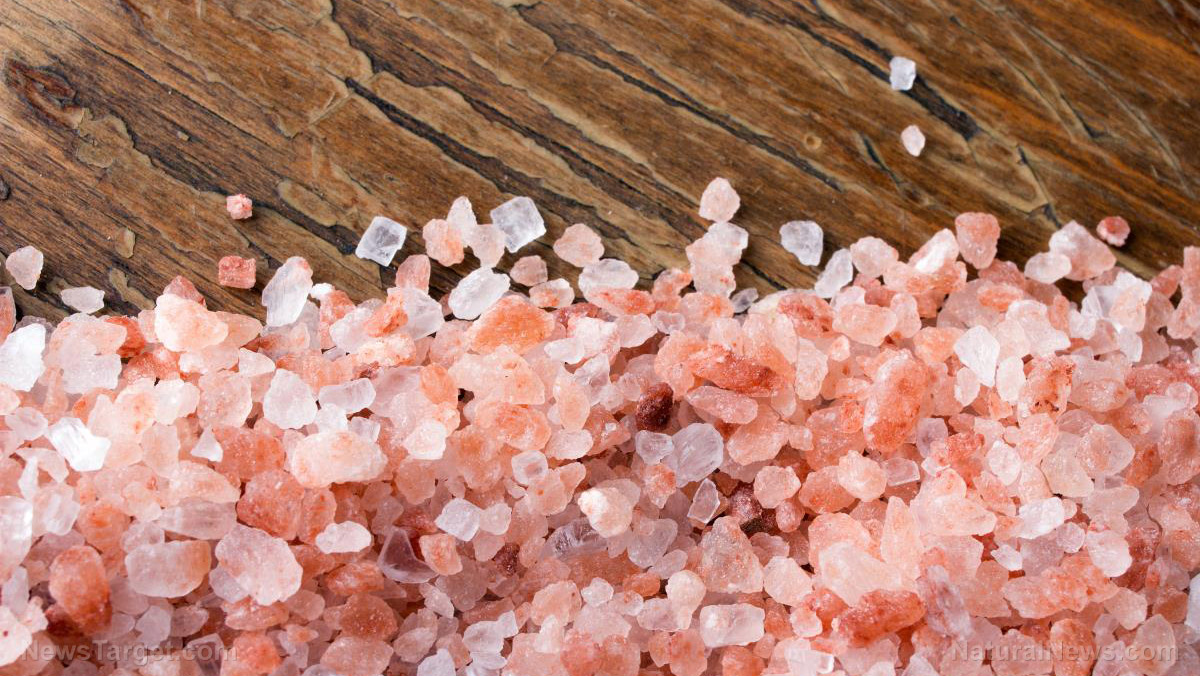More effective than drugs: Indian Lycium alleviates symptoms of rheumatism
12/07/2018 / By Ellaine Castillo

Most people take non-steroidal drugs (NSAIDs) like ibuprofen and naproxen to treat inflammatory diseases. What a lot don’t know is that these medications are harmful to the body. They are associated with potentially fatal side effects like bleeding, peptic ulcers, and increased permeability of the gastric mucosa. To protect patients from these consequences, many researchers are now looking for natural products that can be used as safe and effective alternatives for NSAIDs. One plant that has shown great potential as a remedy for inflammation is the Indian Lycium (Berberis lycium), which was extensively studied by researchers from Riphah International University.
According to the Centers for Disease Control and Prevention, more than 25 percent of Americans suffer from rheumatism, which refers to a wide variety of conditions characterized by the inflammation of joints, muscles, and connective tissues. These diseases are considered to be major causes of disability since they are often accompanied by pain, aching, stiffness, and swelling. Conventional treatments for rheumatic diseases include NSAIDs and disease-modifying anti-rheumatic drugs that actually put the body at risk for other health conditions like kidney problems, diarrhea, nausea, infections, and cancer. Fortunately, there are many natural remedies whose effectiveness are now being backed by scientific research.
The Indian Lycium is traditionally used by people from Pakistan to cure diseases like diarrhea, jaundice, gingivitis, fever, internal wounds, pustules, and rheumatism. Previous studies have revealed that this plant contains various phytochemicals, including berberine, berbamine, sindamine, and punjabine, which can be attributed to its antimicrobial, anti-diabetic, immunomodulatory, anti-hyperlipidemic, and antioxidant activities. Because of its traditional use as a treatment for rheumatic diseases, the Indian Lycium caught the interest of researchers as a potential alternative to NSAIDs and disease modifying anti-rheumatic drugs.
In this study, which was published in The Journal of Animal & Plant Sciences, the researchers evaluated the effects of the Indian Lycium on mice suffering from acute inflammation caused by carrageenan or xylene, as well as formalin-induced chronic inflammation. The researchers observed that when treated with the plant extracts, the mice experienced a significant reduction of inflammation in both chronic and acute models, which followed a dose-dependent manner. However, results were better for acute inflammation compared to chronic inflammation. These results prove that the Indian Lycium has anti-inflammatory activity. Moreover, the previously determined antioxidant potential of this plant can also increase its efficacy against rheumatic diseases.
The researchers also did a preliminary analysis of the phytochemical content, which revealed the presence of flavonoids and phenols. These two classes of phytochemicals can be attributed for the anti-inflammatory activities of the plant, along with the previously identified compounds berbamine, palmitine, and beta-sitosterol.
Overall, these results show that the Indian Lycium has dose-dependent anti-inflammatory activities against chronic and acute inflammation that can be attributed to the presence of phytochemicals, namely flavonoids and phenols. These results provide a solid basis for the traditional use of the plant as a natural remedy for rheumatic diseases and with further research, it can then be utilized as a safer alternative to conventional medications. (Related: Intestinal bleeding caused by pain medication is killing thousands of Americans.)
Risk factors for rheumatism
It is important to know what factors can increase your risk of developing rheumatic diseases since many of these can be avoided with changes in lifestyle. Some common risk factors that can be controlled include the following:
- Obesity — Excess weight increases the risk of knee osteoarthritis since it puts extra stress on weight-bearing joints, which also include the hips.
- Infection — It is important to maintain proper hygiene since microbial agents can infect joints and cause septic arthritis.
- Smoking — People who smoke have a higher risk of rheumatoid arthritis and can also prevent you from getting enough exercise, which is important for maintaining healthy joints.
Sources include:
Submit a correction >>
Tagged Under:
acute inflammation, anti-inflammatory, Berberis lycium, chronic inflammation, herbal remedy, Herbs, Indian Lycium, inflammation, inflammatory diseases, multiple sclerosis, natural remedy, rheumatism, rheumatoid arthritis
This article may contain statements that reflect the opinion of the author
RECENT NEWS & ARTICLES
COPYRIGHT © 2017 CURES NEWS





















